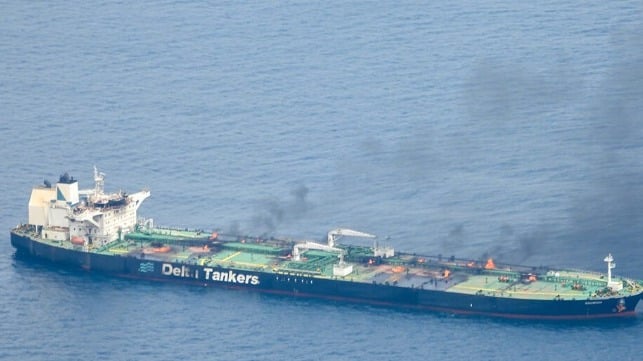What can Trump do that Biden didn't already do?
Admitting we have a problem would be a good place to start.
Houthis had a very productive year. They grew rich in money: scoring $2 billion for protection; and in power: controlling who is allowed to sail through the Bab al-Mandab. And used both to expand - forging ties with Al-Shabaab in the Horn of Africa. They won't go away even if the new administration was able to miraculously bring peace to the Middle East.
Still, it doesn't mean we're left without options.
1. If the new administration really means business, they'll have to show it. A show of force, not necessarily big, but definitely loud - killing their public face: Yahya Saree, or rescuing the "Galaxy Leader" crew from captivity. Something loud enough to send "there's a new sheriff in town" message.
2. Succeed where the Biden admin has failed the most. Assemble an international coalition to protect the freedom of navigation. It needs to be based on countries who's vital interests are threatened the most by the Red Sea crisis - Egypt and Saudi Arabia. Think of a regional version of the European Operation Aspides - purely defensive, and without American presence. Two reasons for that. First, if the US Navy is involved it won't be defensive. Second, we shouldn't waste our resources protecting foreign countries, who showed no intention to protect themselves.
3. Open the Bab al-Mandab for American shipping. Not a single American merchant vessels, has crossed the strait since January. This is causing both economic and reputational damage. To open up the Bab al-Mandab, we might have to cover the war risk premiums for American ships. Assign them US Navy escorts. Embark Marines on American vessels to protect them from unmanned explosive boats. And, if need be, load SHORAD and anti-drone systems (Avenger, M-LIDS, etc.) on board of high value ships, like the ones carrying DOD cargo. Respond to every single attack, and attempt, with force immediately after it happens - not days later. Retaliation needs to be both: immediate and inevitable.
4. The Red Sea crisis became a multi-billion dollar enterprise for the Houthis. They won't go back to whatever they were doing a year ago on their own. We need to cut them down a size. Sanction every shipping company that's paying Houthis protection money. From what I understand, these are local (Saudi, Emirati, Omani) companies, so if they're no longer able to pay for safe passage, their countries might have no other choice, but to use their navies to protect them.
5. Prevent advnced weapons from reaching Yemen. Yeah, I know we've been trying to do it for years without much success, but it doesn't mean there's nothing to be done. The 5th Fleet runs several international operations to combat piracy, smuggling, etc. The new administration should review and restructure them for efficiency.
These are just a few moderate ideas from the top of my head.
There are other, more severe options available: prolonged air campaign, naval blockade, we could even prompt Saudis to reinvade. But it would be more expensive, time consuming, and fraught with consequences, so it would be better not go in that direction.

maritime-executive.com
